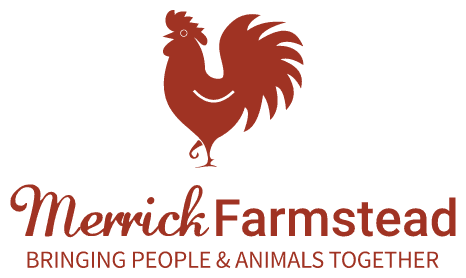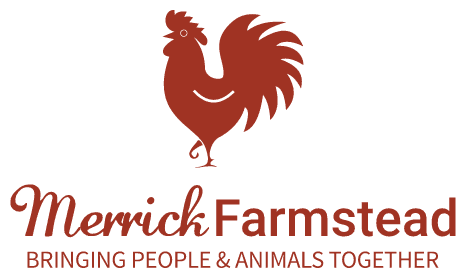We recently welcomed a group of baby pigs to our farm – Beasel and Sunflower. Unfortunately, they were rejected by their mother, so we’ve taken on the role of caregivers to ensure that they receive the love, attention, and sustenance they need to thrive. It’s a unique and challenging situation, but we’re excited to take on this new adventure and share some information and tips with others who may find themselves in a similar situation.
“If you have men who will exclude any of God’s creatures from the shelter of compassion and pity, you will have men who will deal likewise with their fellow men.”
– St. Francis of Assisi
Understanding Rejection:
Piglet rejection can happen for various reasons, from health issues to a sow’s stress or unfamiliarity with the newborns. Recognizing the signs of rejection is crucial, as prompt intervention is vital to the piglet’s well-being.
Piglet rejection by the sow can manifest in various ways. Here are some common signs to look out for:
- Refusal to Nurse:
- The sow actively avoids or rejects attempts by piglets to nurse.
- Piglets may be observed repeatedly trying to suckle without success.
- Aggressive Behavior:
- The sow displays aggressive behavior towards the piglets, such as biting, pushing, or attacking them.
- Restlessness:
- The sow appears restless and uneasy around the piglets, often moving away when they approach.
- Vocalization:
- Piglets may vocalize distress through increased squealing, indicating their attempts to nurse or seek comfort.
- Failure to Bond:
- The sow does not exhibit maternal behaviors like nest-building, licking, or protecting the piglets.
- Isolation:
- The sow isolates herself from the piglets, distancing herself from the nest or moving away when approached.
- Lack of Interest:
- The sow shows disinterest in the piglets’ well-being, neglecting to keep them warm or failing to provide proper care.
- Physical Harm:
- In extreme cases, the sow may cause physical harm to the piglets, resulting in injuries.
It’s important to note that some initial rejection behaviors are expected, and sows may take time to adjust to their piglets. However, persistent signs of rejection can jeopardize the health and survival of the piglets. If you observe consistent rejection behaviors, it’s crucial to intervene promptly to ensure the well-being of the piglets, which may include providing supplemental feeding or fostering by another sow if available. Regular monitoring and early intervention are crucial to addressing piglet rejection effectively.
Pan-feeding
Pan-feeding rejected piglets is an important hands-on process that helps give vulnerable babies a fair chance at thriving. These piglets often miss out on colostrum and regular nursing, so introducing a pan early becomes a lifeline rather than just a training tool. A shallow, non-tip dish is used to offer warm milk replacer, starting with just a thin layer so the piglet can smell and root at it naturally. Many rejected piglets don’t immediately understand how to drink from a bowl, so you may guide them by gently dipping their snout or letting a few drops touch their lips. With patience, they begin associating the pan with comfort and nourishment, building confidence each time they return for a sip.
As they grow stronger, the feeding routine becomes more structured—small, frequent meals, fresh milk each time, and a clean, dry area that keeps them warm and stress-free. Gradually, the milk can be thickened and transitioned to a soft gruel, helping them develop healthy eating habits and preparing them for starter feed later on. Pan-feeding rejected piglets takes extra time and attention, but it often turns a fragile start into a resilient, thriving little pig with a strong bond to its caretaker.
Hand-Feeding:
When a piglet is rejected, hand-feeding becomes a lifeline. Choose a high-quality milk replacer specifically designed for piglets and follow a feeding schedule that mimics the natural nursing rhythm.
Bottle-feeding baby pigs can be a rewarding but delicate task. Typical issues may arise, and it’s essential to address them promptly to ensure the health and well-being of the piglets. Here are some common problems with bottle-feeding baby pigs and potential solutions:
- Difficulty Latching:
- Issue: Some piglets may struggle to latch onto the bottle nipple.
- Solution: Ensure the nipple is the appropriate size and shape. Gently guide the piglet to the nipple and encourage sucking.
- Refusal to Bottle-Feed:
- Issue: Piglets may initially refuse the bottle, primarily if used to nursing from the sow.
- Solution:
- Be patient and gentle.
- Try using a nipple that closely mimics the sow’s teats.
- Gradually introduce the bottle and offer warmth and comfort during feeding.
- Overfeeding or Underfeeding:
- Issue: Determining the correct amount of milk to feed can be challenging, leading to overfeeding or underfeeding.
- Solution: Follow recommended feeding guidelines based on the piglet’s age and weight. Adjust quantities as needed and monitor the piglet’s growth.
- Aspiration:
- Issue: Piglets may accidentally inhale milk, leading to aspiration.
- Solution: Hold the bottle at an angle that minimizes the risk of aspiration. Ensure the nipple has an appropriate flow rate and feed piglets upright.
- Digestive Upset:
- Issue: Overfeeding, sudden changes in diet, or inappropriate milk replacers can cause digestive upset.
- Solution: Feed according to recommended schedules and quantities.
Gradually introduce solid foods as the piglet matures.
Choose high-quality milk replacers suitable for piglets.
- Aggression Between Piglets:
- Issue: In a group feeding situation, some piglets may become aggressive, preventing others from accessing the bottle.
- Solution: Separate piglets during feeding or use multiple feeding stations to reduce competition. Monitor for signs of aggression and address any bullying behaviors.
- Nipple Hygiene:
- Issue: Dirty or contaminated nipples can lead to infections.
- Solution: Regularly clean and sanitize bottle nipples to prevent bacterial growth. Use warm water and mild detergent, and rinse thoroughly.
- Transition to Solid Food:
- Issue: Piglets may struggle with the transition from milk to solid food.
- Solution: Introduce solid food gradually, starting with a high-quality piglet starter feed. Ensure access to fresh water.
Always consult a veterinarian for guidance on specific feeding issues, as they can provide tailored advice based on the piglets’ health and circumstances. Regular health checks, proper nutrition, and a nurturing environment contribute to successful bottle-feeding and the overall well-being of baby pigs.
Creating a Warm Haven:
When caring for rejected piglets, it’s crucial to provide them with a warm and cozy environment that will help them thrive. The first step is to create a snug nesting area that will keep them comfortable and secure. The area should be lined with ample bedding, such as straw or hay, which will help the piglets maintain their body temperature.
Building Emotional Bonds:
Just like human babies, piglets Beasel and Sunflower thrive on emotional connections. Spending time with them, offering gentle strokes and reassurance is crucial. This fosters a sense of security and helps them feel more connected to their human caregivers. At our place, we keep Beasel and Sunflower, the rejected piglets, in the nearby garage so that we can play with them and give them the attention they require.
It’s important to remember that Beasel and Sunflower require more attention and care than other piglets. They are often weaker and more vulnerable and need extra care to ensure they grow up healthy and strong. Therefore, we make sure to monitor their health closely and provide them with a warm and secure environment.
As caregivers, we understand the importance of emotional connections in animal welfare. Beasel and Sunflower are no different and require love, care, and attention to thrive. By providing them with a safe and secure environment and spending time with them, we can help them develop a deeper connection with us and ensure their well-being.
Introducing Solid Foods:
As Beasel and Sunflower grow, it’s time for them to start consuming solid food in order to transition to a more balanced and nutritious diet. To achieve this transition, we introduce a specially formulated piglet starter feed. At the Farmstead, we use Cheerios to help them begin chewing and then add pig feed to their formula/milk replacement when they reach around four weeks of age. This allows them to start eating solid foods while ensuring that they still receive all necessary nutrients.
Health Monitoring:
Regular health check-ups are essential. Monitor weight gain, watch for signs of illness, and consult with a veterinarian for guidance on vaccinations and preventive care.
Observation: Regular and attentive observation is the foundation of monitoring piglet health. Take the time to watch their behavior, noting any changes in activity levels, posture, or interactions with littermates.
Physical Examination: Conduct routine physical examinations to check for signs of illness or abnormalities. Inspect the eyes, ears, nose, and skin. Ensure that the piglet’s body condition is appropriate, and be alert to any signs of lameness or difficulty moving.
Weight Monitoring: Regularly weigh piglets to track their growth and development. Sudden weight loss or poor weight gain can be indicative of health issues. Keep accurate records to identify trends and address concerns promptly.
Temperature Checking: Use a rectal thermometer to monitor a piglet’s body temperature. Normal rectal temperature for a piglet is around 102-103°F (38.9-39.4°C). An abnormal temperature may indicate fever or hypothermia.
Behavioral Changes: Piglets are naturally curious and playful. Any significant changes in behavior, such as lethargy, isolation, or aggression, could be signs of illness. Monitor for changes in eating and drinking habits as well.
Respiratory Health: Observe the piglet’s breathing patterns. Rapid or labored breathing may be a sign of respiratory issues. Check for coughing or nasal discharge, which could indicate respiratory infections.
Gastrointestinal Health: Monitor feces for consistency and color. Diarrhea, constipation, or abnormal colors may signal gastrointestinal problems. Pay attention to any signs of abdominal discomfort, such as bloating.
Social Interaction: Pigs are social animals, and changes in social dynamics can indicate stress or illness. Monitor interactions with littermates and ensure that rejected piglets receive appropriate care.
Hydration: Assess hydration levels by observing skin elasticity. Lift the skin on the back of the piglet and release it; it should quickly return to its normal position. Dehydration can be a serious concern and should be addressed promptly.
Fostering Socialization:
Pigs are social creatures and even rejected piglets benefit from companionship. It’s a good idea to arrange playdates with other piglets or gentle farm animals to help them develop social skills and a sense of belonging. At Merrick Farmstead, we do have additional pigs, but they are much older. Therefore, it’s best to keep them separate from Beasel and Sunflower to avoid any fighting or bullying that could cause harm or distress. However, in this particular situation, since Beasel and Sunflower have each other, we are not too worried about it.
The Importance of Patience:
Caring for rejected piglets requires patience and dedication. It’s important to understand that setbacks may occur, but with consistent care and attention, these resilient piglets can overcome challenges and grow into thriving members of the farmstead. If you choose to care for a bottle baby pig, it’s essential to remember that they are incredibly cute but will require a lot more attention and patience. Once you set your expectations, it’s crucial to stick to the regime and keep pushing forward with love.
Conclusion:
Taking care of rejected piglets such as Beasel and Sunflower is both an art and a science, requiring a balance of practical knowledge and emotional investment. Through this journey, we learn that these resilient piglets teach us not only about farming, but also about care, compassion, and growth – qualities that extend far beyond the barnyard.
In nurturing rejected piglets, we discover the extraordinary rewards of fostering life, resilience, and the enduring spirit of Merrick farmstead.


Pingback: How to Take Care of New Piglets: A Comprehensive Guide – Merrick Farmstead